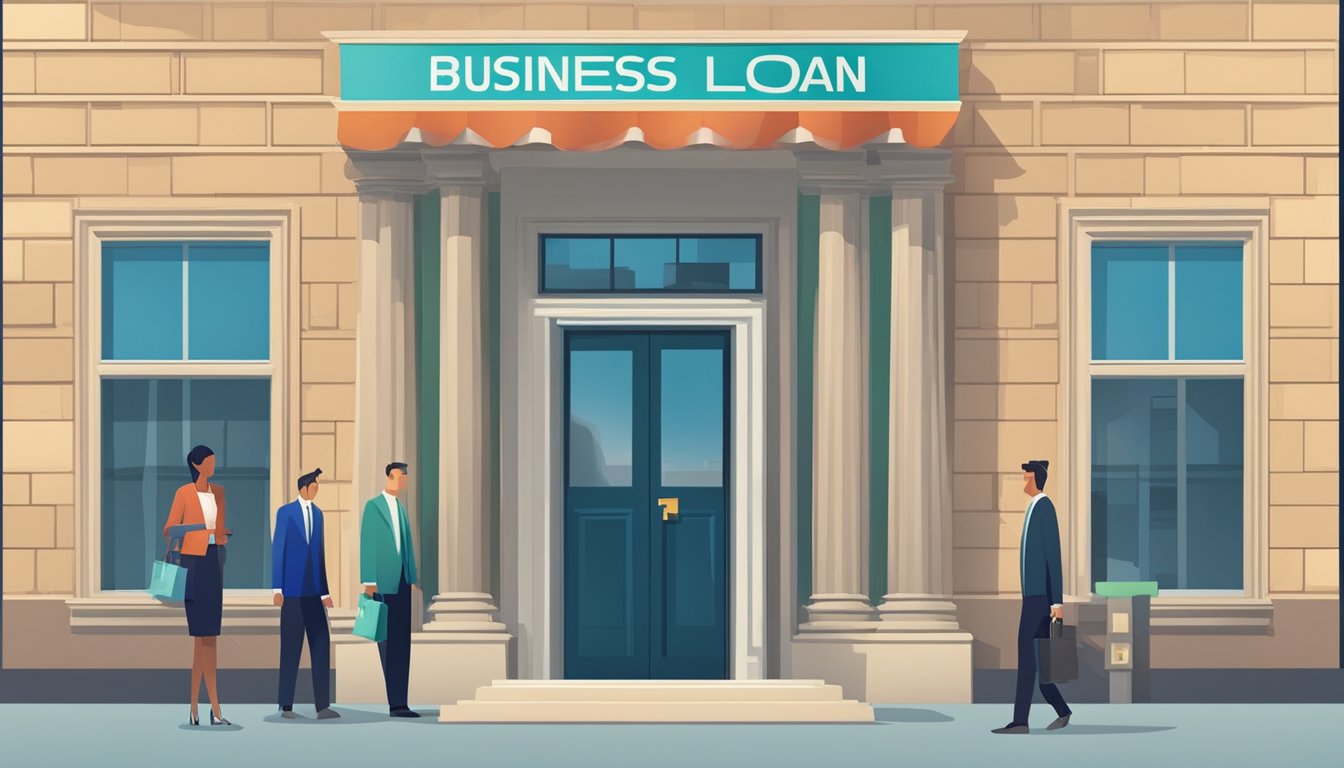Business loan interest rates are a crucial factor to consider when you’re looking to secure financing options for your business. The interest rate is the amount of money you’ll be charged on top of the principal amount you borrow, and it can significantly impact your business’s financial health.

Understanding business loan interest rates can be challenging, as different banks may offer different interest rates and terms. Typically, the interest rate ranges from 7% to 11% per annum for a secured business loan and between 5% to 15% per month for an unsecured loan. Factors such as your business’s credit score, operational years, and minimum turnover can also affect the interest rate you’re offered.
Securing the best loan for your business requires careful consideration and research. You’ll need to assess your business’s financial needs and determine the type of loan that’s most suitable for you. It’s also essential to compare the interest rates and terms offered by different banks to ensure that you’re getting the best deal.
Key Takeaways
- Business loan interest rates can significantly impact your business’s financial health.
- Understanding business loan interest rates can be challenging, as different banks may offer different interest rates and terms.
- Securing the best loan for your business requires careful consideration and research.
Understanding Business Loan Interest Rates

When it comes to securing a business loan, one of the most important factors to consider is the interest rate. Understanding how interest rates work and what factors affect them can help you make an informed decision about which loan to choose. In this section, we’ll explore the different types of interest rates, factors that affect interest rates, and how to compare rates from different lenders.
Types of Interest Rates
There are two main types of interest rates: fixed and variable. A fixed interest rate remains the same throughout the life of the loan, while a variable interest rate can change over time based on market conditions.
Factors Affecting Interest Rates
Several factors can affect the interest rate you receive on a business loan. These include:
- Credit score: Lenders will typically offer lower interest rates to borrowers with higher credit scores.
- Loan amount: Larger loans may come with lower interest rates.
- Loan term: Longer loan terms may come with higher interest rates.
- Collateral: Loans that are secured with collateral may come with lower interest rates.
- Industry: Some industries may be considered higher risk than others, which can affect the interest rate offered.
Comparing Bank and Alternative Lender Rates
When comparing interest rates from different lenders, it’s important to consider both traditional banks and alternative financing options such as licensed moneylenders and government-assisted loans. While banks may offer lower interest rates, alternative lenders may be more flexible with their lending criteria and offer quicker approval times.
Overall, understanding how interest rates work and what factors can affect them can help you make an informed decision about which business loan to choose. By comparing rates from different lenders and considering other loan conditions, you can find the best loan option for your business’s needs.
Securing the Best Loan for Your Business

When it comes to securing a business loan, it’s important to take the time to evaluate your options and negotiate with lenders to get the best possible offer. Here are some tips to help you secure the best loan for your business.
Evaluating Loan Offers
Before accepting a loan offer, it’s important to evaluate the terms and conditions to ensure that they are suitable for your business. Consider the loan amount, interest rate, repayment period, and any other fees or charges that may apply. You should also check the eligibility criteria to ensure that you meet the lender’s requirements.
When evaluating loan offers, it’s important to compare them with other options available in the market. Use online comparison tools to get an idea of the average interest rates and fees charged by different lenders. This will help you make an informed decision and choose the best loan offer for your business.
Negotiating with Lenders
Don’t be afraid to negotiate with lenders to get a better deal on your business loan. If you have a good credit score and a strong financial track record, you may be able to negotiate a lower interest rate or better repayment terms.
When negotiating with lenders, be prepared to provide evidence of your business’s financial stability and growth potential. This will help you demonstrate that you are a low-risk borrower and increase your chances of securing a better loan offer.
Government Schemes and Assistance
If you’re struggling to secure a business loan from traditional lenders, consider exploring government-assisted schemes and assistance. These schemes are designed to help SMEs access financing and grow their businesses.
Enterprise Singapore offers a range of government-assisted schemes, including the SME Working Capital Loan and the Business Term Loan. These schemes offer low-interest rates and flexible repayment terms, making them an attractive option for SMEs.
Other lenders, such as UOB and Standard Chartered, also offer SME loans with government risk share. This means that the government will share the risk of the loan with the lender, making it easier for SMEs to access financing.
In conclusion, securing the best loan for your business requires careful evaluation, negotiation, and consideration of government-assisted schemes and assistance. By taking the time to explore your options and negotiate with lenders, you can secure a loan that meets your business’s needs and helps you achieve your growth goals.
Frequently Asked Questions

How can you calculate the interest rate for a small business loan?
The interest rate for a small business loan is calculated based on various factors, including the loan amount, the repayment period, and your credit score. You can use an online business loan calculator to help you estimate your monthly repayments and the total interest payable.
What determines the interest rate on a startup business loan?
The interest rate on a startup business loan is determined by several factors, such as the financial health of your business, your credit score, and the amount of collateral you can provide. Typically, startups are considered riskier than established businesses, which may result in higher interest rates.
Are there any tips for securing a lower interest rate on your business loan?
Yes, there are a few tips that can help you secure a lower interest rate on your business loan. Firstly, maintain a good credit score and credit history. Secondly, provide collateral to secure the loan. Lastly, shop around and compare the interest rates offered by different lenders to find the best deal.
How do the interest rates for SME Working Capital loans compare to other business loans?
SME Working Capital loans typically have lower interest rates than other business loans because they are designed to help small and medium-sized enterprises (SMEs) manage their cash flow and working capital. However, the interest rate may vary depending on the lender and your creditworthiness.
What factors influence the variance in business loan interest rates between banks?
Several factors can influence the variance in business loan interest rates between banks, including the lender’s risk appetite, the type of loan, the loan amount, and the repayment period. Additionally, the lender’s operating costs and profit margins may also affect the interest rate.
How often do interest rates on business loans change, and what impacts this?
Interest rates on business loans can change frequently, depending on various economic and market factors, such as inflation, monetary policy, and the lender’s risk appetite. Additionally, changes in your credit score or financial health may also impact the interest rate offered by lenders.




